Yohei Fukuda is probably the most prestigious bespoke shoemaker in the world. I think the main reasons are three aspects, one is the delicacy of the Japanese, the other is the media, and the last is the price. The three are not completely isolated.
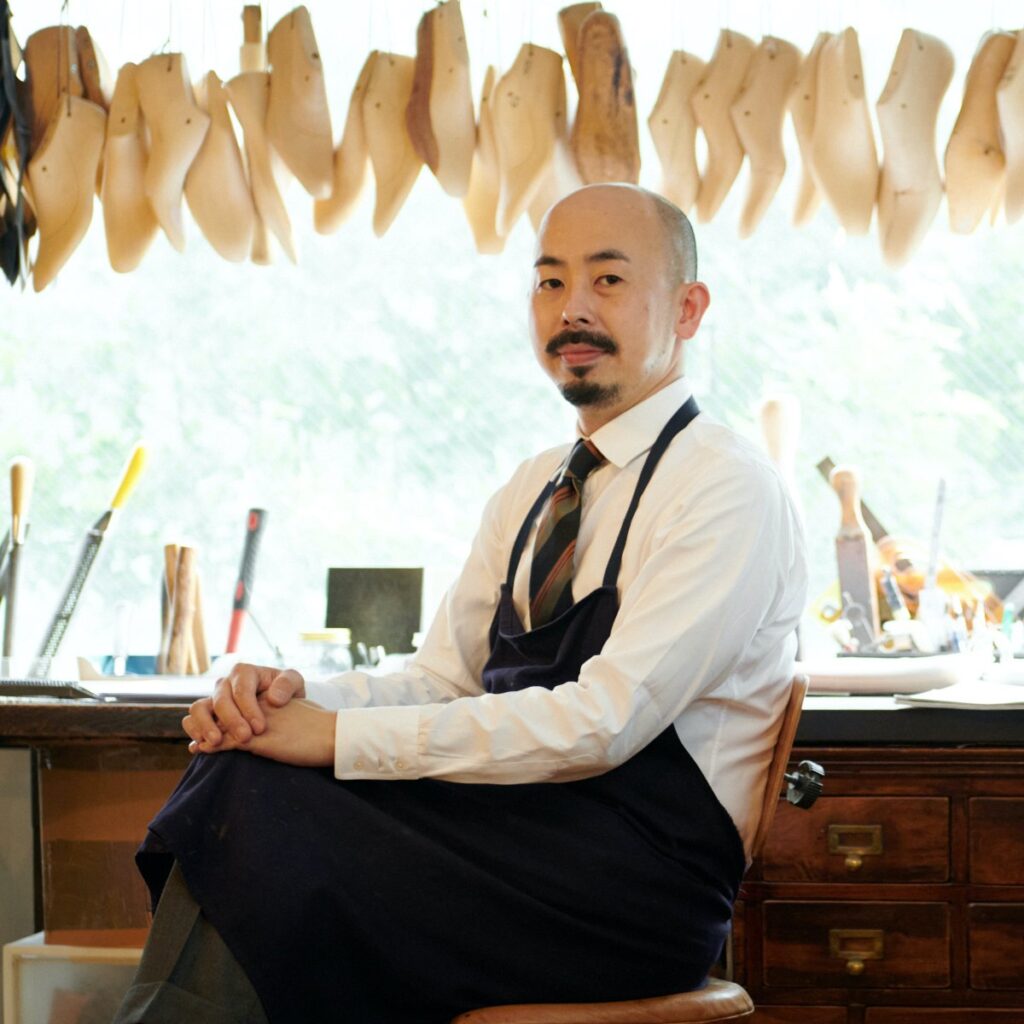
If we look at another master, Roberto Ugolini.
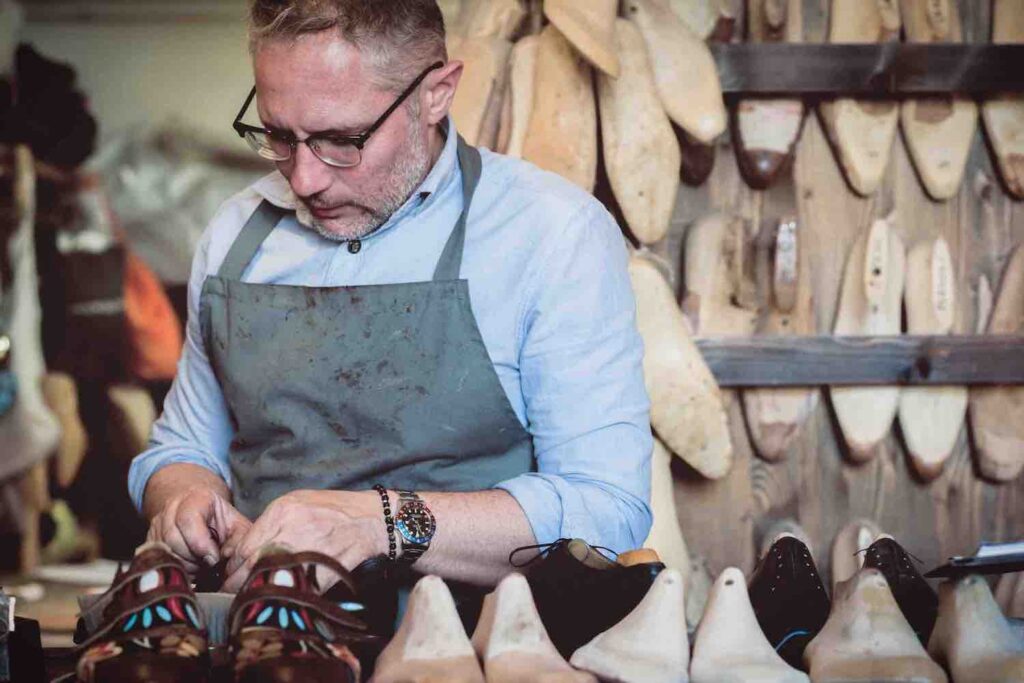
From the perspective of qualifications, including the high reputation of the apprentices, Roberto should be regarded as a better one. But because the shoes are still relatively “simple”, they are not treated as works of art too much, and they are mainly for ordinary people to wear. In terms of the texture of the shoes, they have lost a notch (the aesthetics of shoes will not lose at all!).
At the same time, in the media propaganda, have you ever seen the name “Caesar of bespoke shoemaker”? No. But many people have heard of “the last emperor in dress shoes”. Everyone knows the exaggeration of Japanese propaganda, but at the same time, many leading bloggers in the world, such as Jesper of ShoeGazing and Simon of PermanentStyle, have advocated him, making him popular not only in Japan, but also all over the world.
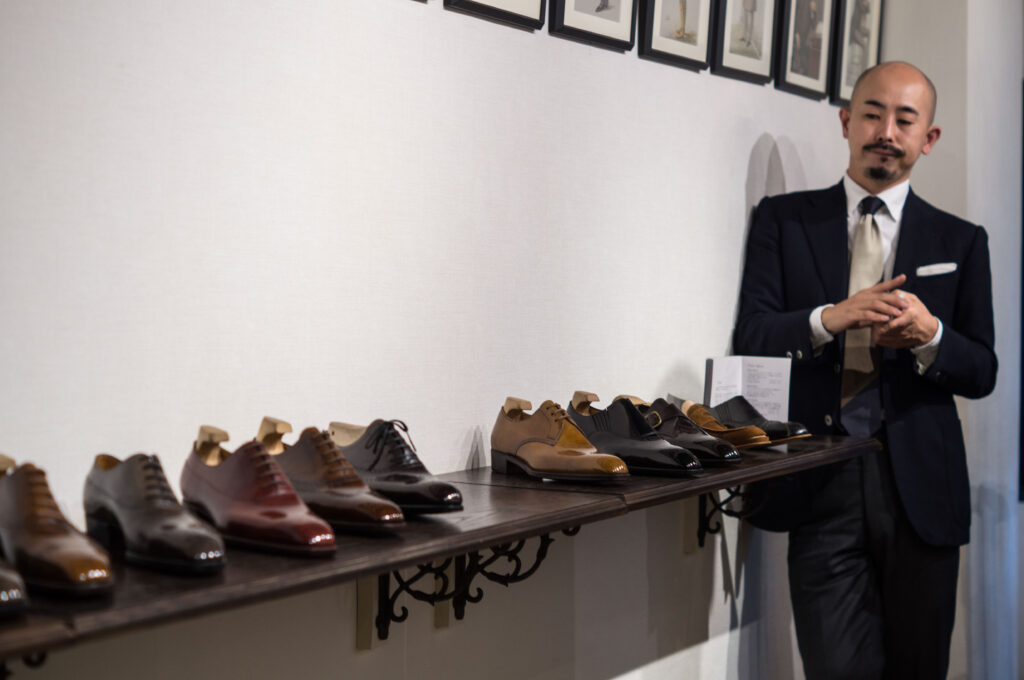
Finally, the price, the well-known bespoke shoemakers in Britain and France, nromally ask for as high as 50,000 RMB and Yohei Fukuda is only 30,000 RMB, and the product fineness of the latter is even better, so it is very cost-effective.
Along the route of Yohei Fukuda, more and more Japanese shoemakers have made their mark overseas. It can be said that Japanese shoemakers are now the mainstay of the world. No matter which brand with a long history they are currently under, it is conceivable that they will set up their own brands in the near future. The most recent one should be Ms. Akiko Matsuda, who has worked in Foster & Son for a long time.
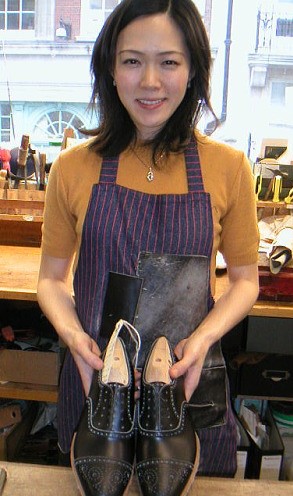
There are many Japanese shoemakers studying and working in the three core places of the world’s shoemaking industry, namely, Britain, France and Italy. With the exploration of predecessors, such as Hiroyuki Yanagimachi, this has become a very mature and safe route, so that those who are willing to join this industry can move forward with peace of mind.
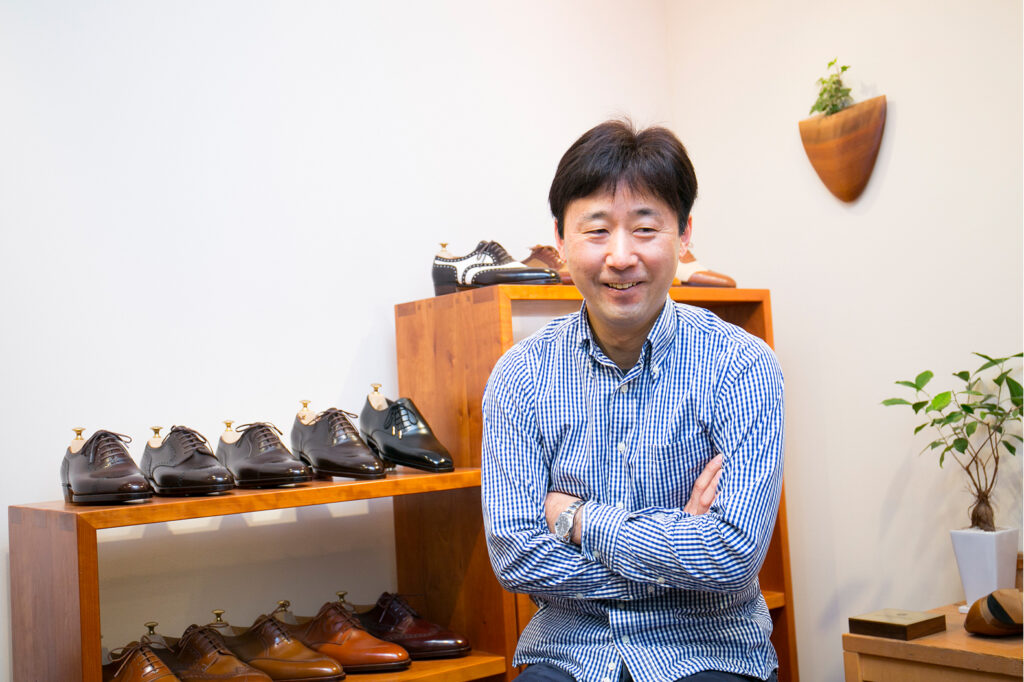
Yohei Fukuda studied English in Brighton for a year at first. Before he went to Britain, there was no information on what industry and experience he was engaged in.
Then he went to Tresham College in Wellingborough to study shoemaking.
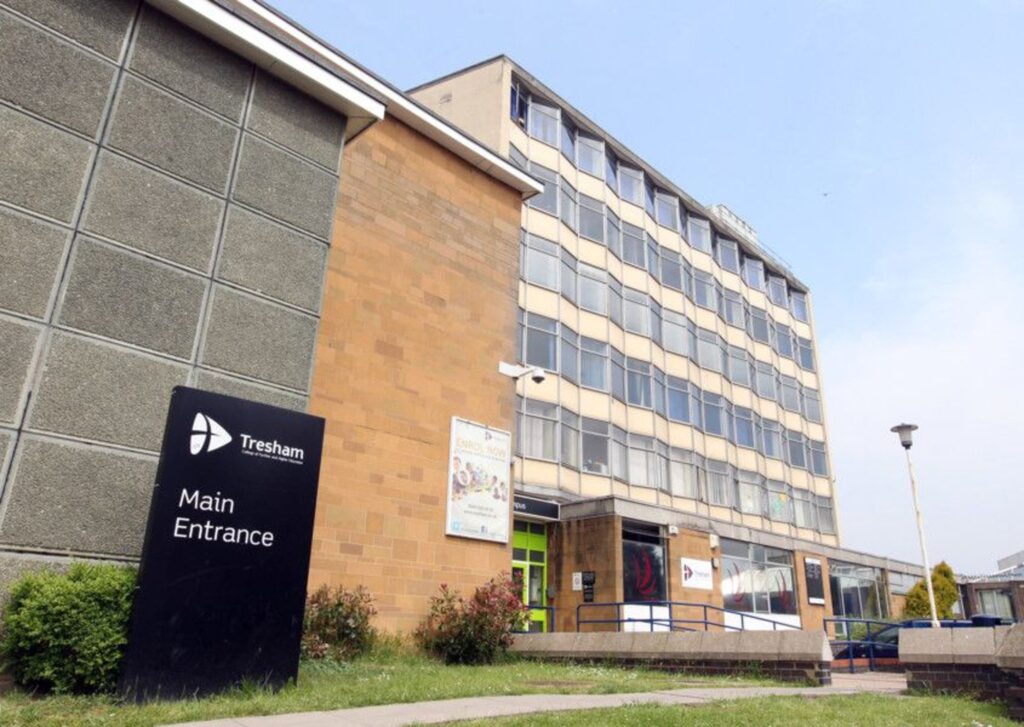
Shoji, the shoemake behind Marquess, said that 80% of the people who studied shoes in Tresham College were Japanese. Yohei Fukuda studied there for two years.
After graduation, Yohei Fukuda worked in some shoe factories in Northampton. Edward Green is the most talked about because he met Tony Gaziano there. (Tony was in charge of Edward Green’s Top Drawer department before he founded Gaziano & Girling with Dean).
The shoes he cooperated with Armoury, a Hong Kong menswear boutique, were produced by Cheaney, and he also worked in Cheaney’s factory.
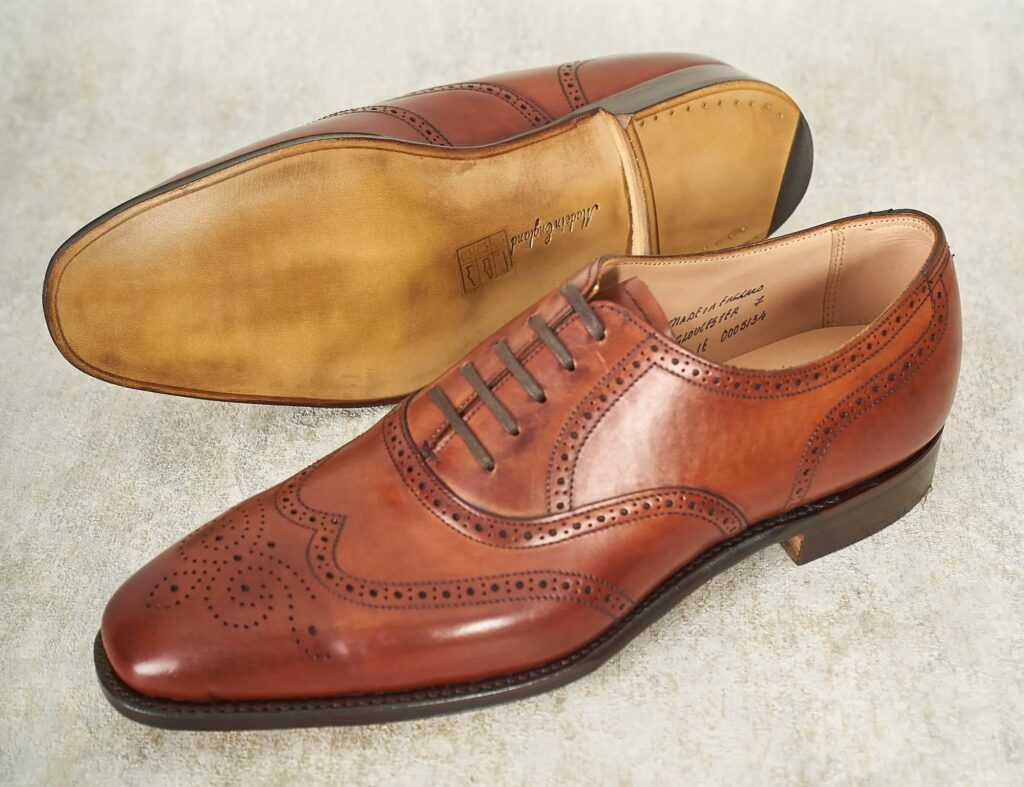
After getting to know Tony, Yohei Fukuda expressed his wish to engage in bespoke shoes, and Tony introduced him to Ian Wood.
Eight months later, Yohei Fukuda successfully interviewed George Cleverley and worked there for three years. The most obvious thing about Yohei Fukuda’s shoes is George Cleverley’s square chisel last.
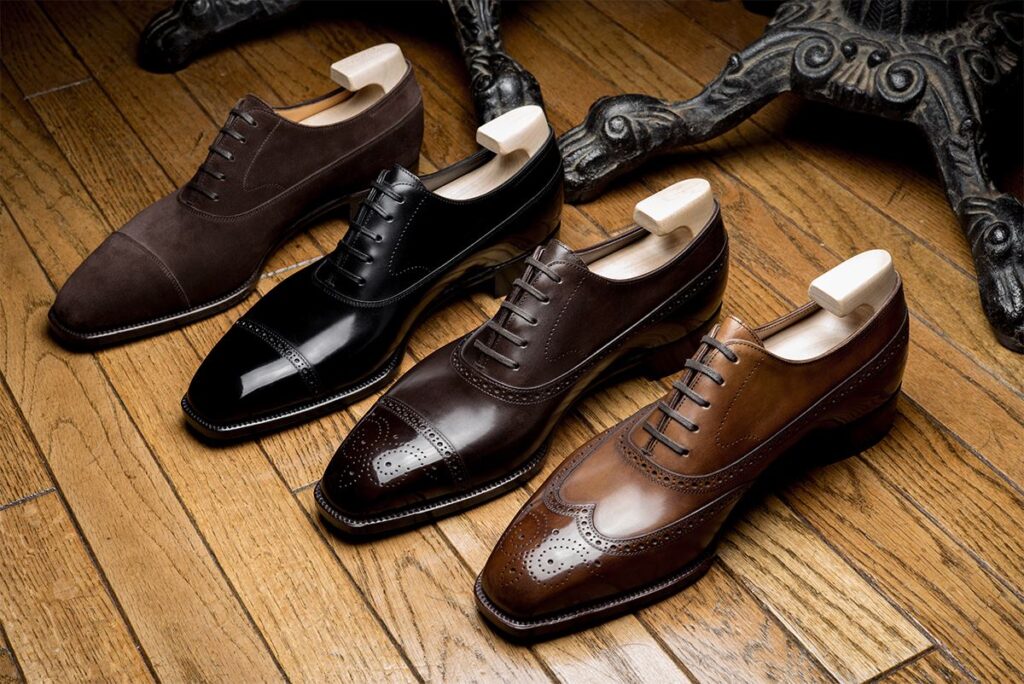
However, Yohei Fukuda’s last-making skills can’t be regarded as learned in George Cleverley, because he studied under Jason Amesbury.
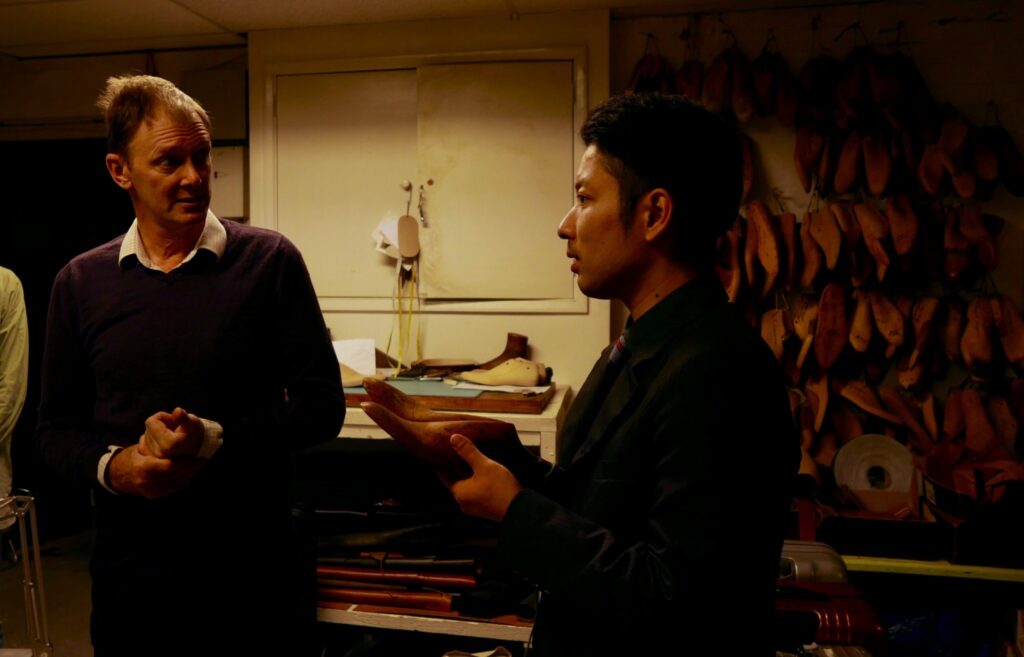
Jason has his own independent bespoke shoe business. Before going it alone, he was the chief clicker of John Lobb St James and the master of lastmaking.
Yohei Fukuda returned to Japan in 2006 and founded his own brand.

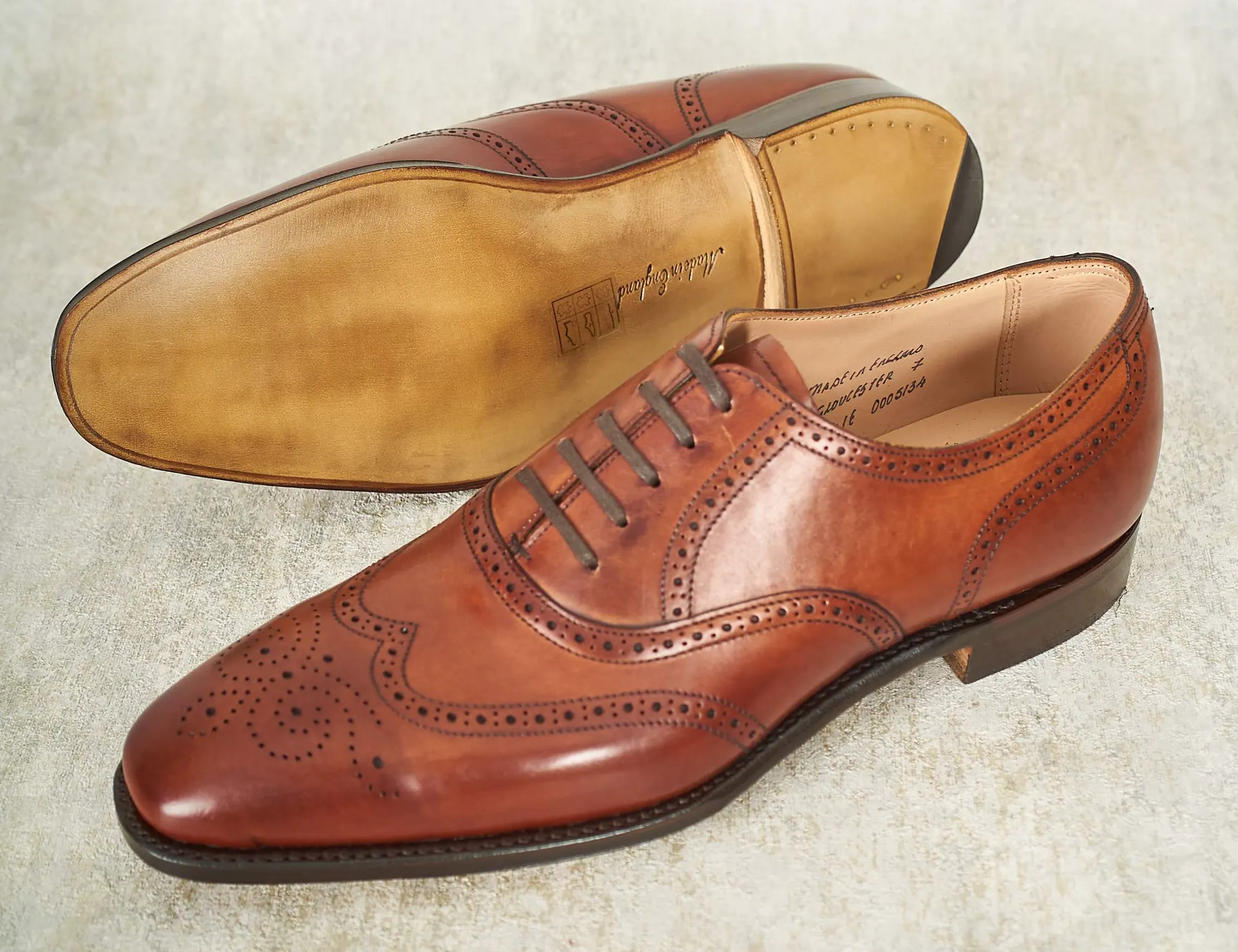
看第一雙底的finish感覺沒贏C&J阿XD
Armoury的鞋子,是Cheaney代工的,怎么赢过CJ?